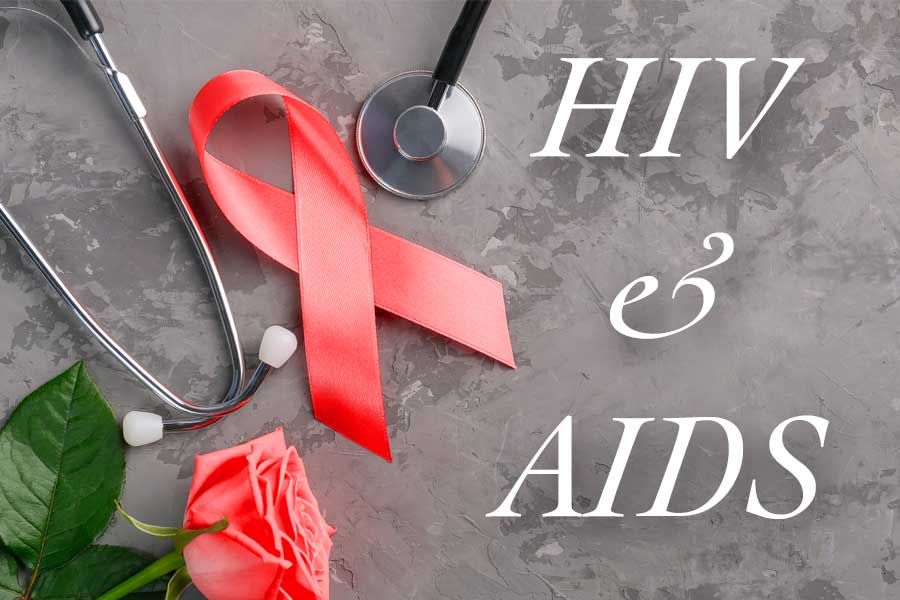Trusted for 25+ Years
Talking To Kids About Sex

Dr. Lisa Lawless, CEO of Holistic Wisdom
Clinical Psychotherapist: Relationship & Sexual Health Expert

Protect Your Children From Becoming Victims
The internet is an excellent resource for children; however, this convenience can become an unhealthy and hazardous environment if not monitored correctly. With such an abundance of information at their fingertips, it is easy for children to end up in a pedophile's playground unknowingly. Online online games, apps, chat rooms, instant messages, and message boards are easy ways for sexual predators to hunt prey.
The following are good rules to have for your children to help keep them safe and to prevent them from sharing sensitive information about themselves:
- Never fill out questionnaires or any forms online or give out personal information (such as name, age, address, phone number, school, town, password, schedule) about yourself or anyone else. (Ensure your children understand that if they give your phone number to someone online, they can easily find your address and get a map to your house).
- Never agree to meet in person with anyone you have spoken to online. Never enter a chat room without Mom and/or Dad's presence or supervision. Some "kids" you meet in chat rooms may not really be kids; they may be adults with bad intentions. Remember, people may not be who they say.
- Never tell anyone online where you will be or what you will be doing.
- Never respond to or send email to new people you meet online. Remember: It is okay not to answer every email and instant message.
- Never go into a new online area that will cost additional money without first getting permission from your parents.
- Never send a picture over the internet or via regular mail to anyone you've met on the internet.
- Never respond to any negative or suggestive messages or anything that makes you feel uncomfortable. End such an experience by logging off and telling your parents as soon as possible.
- Always tell someone you know about anything you saw, intentionally or unintentionally, that is upsetting. (It is better for your child's mental health to be able to discuss exposure to pornography than for it to become a dark and confusing secret.)
Parents Should Do The Following
- Be sure to keep computers in shared household areas.
- Children should have gender-neutral screen names.
- Talk to your child about what sites they visit, whom they communicate with, and who's on their buddy list.
- No software will ever be a substitute for being an active parent.
Related Resources
- Family Watchdog: FamilyWatchdog.us
- The Victims National Center for Missing and Exploited Children: MissingKids.com
- The Polly Klaas Foundation: PollyKlaas.org
- The Jessica Marie Lunsford Foundation: JMLFoundation.com #464673
- Amber Alert: AmberAlert.gov
How to Talk to Your Child about Porn
With porn so easily accessible these days, you may decide to talk to your children about porn so that when they encounter it (and they will most likely encounter it before they are an adult in some form), they are prepared to understand better what they are seeing.
Kids stumble upon porn through sheer accidents and intentionally, and when they do, they are best served by being prepared to handle it to maintain a healthy perspective of sex. Your guidance should come from a place of calm with a matter of fact discussion about the difference between sex and sex for entertainment.
If your child has already seen porn, it is essential to stay calm and understand that kids have been exposed to sexual images and concepts since the world began, and like most kids that have heard about or seen it, yours will be fine.
Of course, you should not discuss porn with children that are too young. Typically kids have some exposure to porn in late middle school to early high school (whether it is just discussed or viewed), so that may be an excellent time to have this discussion. However, it would help if you based this decision on your child's maturity level. Porn should also not be discussed during the first time you discuss sex with your child.
Sexual topics that should be covered before you discuss porn are:
- The physical differences between men and women (anatomy).
- Masturbation and how it is normal and healthy to touch one's self.
- Pregnancy and contraception.
- How to decide when to have sex with someone.
- How alcohol and drugs can impact the decision-making process when choosing to have sex.
How to Start the Porn Conversation
Starting with a caring tone is the best place to start, for example, "I want to talk with you about something that you may come across in your life so that you will be prepared to understand it better. I am talking about porn, which consists of sexual images made for adults to watch and are not appropriate for kids. I don't want you to see it until you're an adult, but I want you to understand some essential things about it if you do.
Because this can be an awkward discussion with your child, keep the discussion in general terms, and not discuss your own sexual experiences or porn viewing habits. Children often feel uncomfortable thinking about their own parents having sex or thinking about sex. You should also let them know that porn is not watched or enjoyed by everyone, but you should discuss it because it is so prevalent.
Porn Is Not Real
Like any movie, these are actors and actresses paid to follow a script and portray characters. Porn is not an accurate viewpoint of sexuality. It is not realistic and is done for entertainment purposes. The goal of porn is not to provide education, rather entertain. It omits all of the real moments of sex by cutting out things that may be perceived as ordinary and focuses on the physical highlights of sex. Porn can be compared to a video game in that you know that what you are watching is not real, but you can still find the visual effects interesting to watch.
Porn Omits The Best Parts Of Sex
Porn leaves out the best parts of sex, which are people's emotions when they have it. It omits intimacy, laughing, and talking to one another in caring ways. Because porn producers want to show visually arousing moments, they focus on people rubbing their bodies against one another, which is out of context and not based on real sex.
Porn Shows Unusual Bodies Doing Unrealistic Things
Porn shows people with unusual bodies doing atypical things sexually. Porn actors do not have average physical features and have had surgery to alter their bodies in many cases. It is important not to compare yourself to someone you are intimate with a porn star as it is an unrealistic expectation.
Why Porn Is For Adults
Porn is created for adults who already have sexual experiences and understand that what they are watching is not real. An example of this in porn is a woman that has sex with a delivery man that comes to the door. This is to symbolize a woman that wants to have sex, not how a woman typically behaves in real life.
You may also choose to explain that porn is only legal between consenting adults, and if it is of someone under the age of 18 years old, it is illegal. It should be reported to ASACP.org, which is a nonprofit organization dedicated to online child protection.
Computer Viruses & Spyware Warning
An additional concern about viewing porn is that many pornographic websites have viruses and spyware that download onto computers, tablets, and phones, making it a risky thing to view on the internet. This is important to understand as it may compromise their technological devices.
Porn Addiction
Porn viewing when an adult should be done in moderation as it can (like anything) become addictive and promote unrealistic sexual expectations. It is important to understand that porn releases dopamine in the brain, much like exercise or drugs. This dopamine release can make it enticing to do repeatedly, which can lead to an addiction. Therefore, like anything in life, if you decide to watch it when you are an adult, it should be done with the following in mind:
- Understand that what you are watching is not real or realistic.
- If you choose to watch it as an adult, it should be done in moderation to avoid hardwiring your brain to crave and need it.
- Focus more on sexual behaviors that make you and your partner feel good about yourselves and support intimacy, kindness, and love for yourself and one another.
Porn For Minors Is Illegal
Accessing porn when you are under the age of 18 years of age can get your child and you into trouble, and that is one reason to avoid it before your child is an adult. This can also be an excellent time to discuss the dangers of sexting and sharing sexual information with peers as there are risks of legal action against them even when it is between minors.
How to End the Porn Conversation
Make sure to ask your child if they have any questions and let them know that if they do, that you are open to discuss it with them. Reassure them that you will be honest with them and that while this kind of thing may feel uncomfortable to talk about, it is part of your responsibility as a parent to prepare them for the world that they live in as best as you can, and that is why discussions like this are essential.
Adolescent Sex Education: Providing A Holistic Approach
Taking a holistic approach to sexual health is important not just for ourselves but also for our children. Addressing physical and emotional and mental concerns during this transformative age is a crucial role of every parent.
It begins with understanding that sexual health is simply part of our health in general. It is nothing to be ashamed about; in fact, it is a beautiful gift that should be celebrated with a positive outlook. By promoting healthy approaches regarding sexuality to our children, we empower them to be more confident, responsible adults.
Issues that are important to address when reviewing sexual health issues are sex education, pregnancy, and STD prevention. However, exploring other sexually influenced topics such as hormone fluctuations that can cause acne, depression, anxiety and painful menses are also essential to review.
We often forget that our health is integrated with every aspect of who we are. A healthy diet is crucial for our physical development and our emotional, mental, and sexual development. In addition, it is important to openly discuss the changes that will be occurring in their bodies. Children and teens often silently worry about whether their changes are normal or may be health flags that need to be addressed.
For example, boys can develop testicular cancer, and girls can develop breast cancer at young ages. Educating them on things that they should be aware of, how to do self-checks and when to see a doctor and how to speak to their doctor are all points that should be made. It is also good to review those things that are normal changes as it is a reassuring and responsible parental approach that will provide peace of mind to your child as they change.
Children depend on their parents to help them manage their lives until they are old enough to do it independently. Helping to give them the tools for managing their sexual health through education through an open and honest approach will allow them to be much more well adjusted and healthier adults.
Below are some topics that you may wish to discuss with your adolescent child:
- Sex & Nutrition: How It Impacts Hormones & Health
- Health Concerns: Symptoms of Cancer & Disease
- Sex Education: The Basics, STD & Pregnancy Prevention
- Exercise: Improving Health & Reducing Anxiety / Stress
- Masturbation: A Healthy Way to Explore One's Sexuality
- Sexting: Addressing Risks & Permanence
- Social Pressures: Benefits of Choosing Their Path
-
Rape Prevention: Addressing Risks & Boundaries
-
Sexual Orientation & Identity: Discussing Unconditional Love & Acceptance
- Sexual Curiosity: Porn Realities & Experimentation
- Social Norms: Superficial vs. Healthy Sex
- Communication: Allowing for Open Dialog





